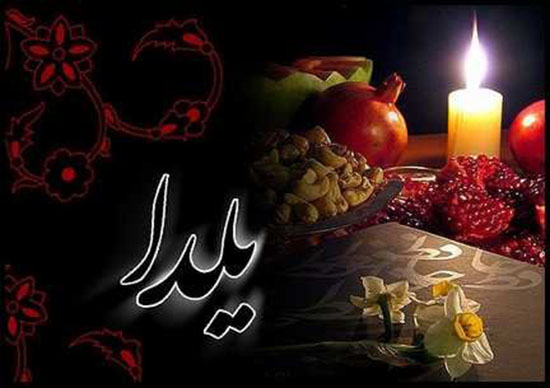
Yalda, the longest night of the year before the arrival of winter, is here. Lots of Iranians are preparing themselves to celebrate this event. This is the time when family members get together, celebrating and eating different kinds of foods. The colder the Yalda is, the happier time people spend. The word Yalda, which means birth, is a Syriac word imported into the Persian language. Yalda symbolizes lots of things just as it represents the longest night in a year and reminds us of happiness, pomegranate, watermelon, poem, and Korsi, a type of low table found in Iran, with a heater underneath it, and blankets thrown over it. Some sources say Yalda is taken from Islamic times. In pre-Islamic Zoroastrian tradition, the longest and darkest night of the year was a particularly inauspicious day. The rituals practiced during the night - now known as 'Shab-e Chelleh' - were originally customs intended to protect people from the evil of the prolonged darkness. Through all these years, Iranians have kept the tradition of gathering at elders’ homes, particularly their parents, in order to celebrate a happy night. They start the night by consuming fruits and nuts. Among fruits, pomegranate and watermelon play a key role in Yalda celebrations. Fruit sellers are also happy as well as other Iranians. Reading the poems of Persian poet Hafez is another customary tradition which Iranians are interested in. They open the collection of Hafez verses and make a wish. It is believed that Hafez has had the ability to see into the future so Iranian families enthusiastically go to Hafez to see what the future has in store for them; happiness or unhappiness? Yalda is not just for Iranians. A number of other nations including Afghanistan, Tajikistan, Turkmenistan, and Uzbekistan have been celebrating the longest night of the year for centuries. As far as Iranian culture is concerned, maintaining cultural traditions is important. By following our ancestors’ traditions and customs, as a matter of fact, we protect our identity. While many nations in the world have forgotten their culture and traditions they have inherited from their ancestors, it is a merit for Iranians that still carry on such ancient traditions. Yalda Night was officially added to Iran's List of National Treasures during a special ceremony in 2008.
Or
Yalda Night or 'Shab-e Chelleh' ('Night of Forty') is an Iranian festival celebrated on the "longest and darkest night of the year", for example the night of the winter solstice in the northern hemisphere.
Each year, on December 21, Iranians celebrate the arrival of winter, the renewal of the Sun and the victory of light over darkness on Yalda Night.
Ancient Iranians believed that the dawning of each year is marked with the re-emergence or rebirth of the Sun — an event that falls on the first day of the Iranian month of Dey (December 21).
On this day, the Sun was salvaged from the claws of the devil, which is represented by darkness, and gradually spread its rays all over the world to symbolize the triumph of good over evil. Family members get together (most often in the house of the eldest member) and stay awake all night.
Pomegranate, watermelon and dried nuts are served as a tradition and classic poetry and old mythologies are read in the gathering.
It is believed that having watermelons on Shab-e Chelleh will ensure the health and well-being of individuals during the summer by protecting them against excessive heat or disease.
In Iran's northeastern province of Khorasan, it is widely believed that whoever eats carrots, pears, pomegranates, and green olives will be protected against the harmful stings, particularly those of scorpions. Eating garlic on this night protects one against pains in the joints.
Reading the poems of great Persian poet Hafez, generally as fortune-telling, is also among the traditions.
Another custom in certain parts of Iran on Shab-e Chelleh involves young engaged couples. The men send an edible arrangement containing seven kinds of fruits and a variety of gifts to their fiancées on this night.
Central Asian countries such as Afghanistan, Tajikistan, Uzbekistan, Turkmenistan and Caucasian states including Azerbaijan and Armenia also share the same tradition and concurrently celebrate Yalda Night each night.
History of Yalda Night dates back to the birth of Mithra, the goddess of light. The occasion was registered on Iran's National Heritage List in 2008.

Add new comment